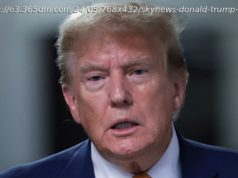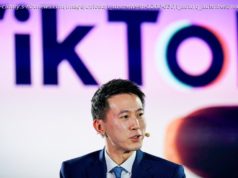Relations between the two nations have deteriorated sharply in recent days, leading some to suggest that we are on the brink of a new cold war.
Relations between the United States and China have deteriorated sharply in recent days after trade negotiations broke down, leading some to suggest we are on the cusp of a new “cold war.”
President Donald Trump blames the resumption of hostilities on China. Specifically, he and his negotiators say their Chinese counterparts backtracked on an agreement to change laws aimed at enforcing the deal, prompting Trump to raise tariffs on $200 billion in imports and China to retaliate. Only a few weeks earlier, the two sides seemed very close to a deal.
So what led to Chinas change of heart—if there was one?
As an expert on Chinas development and economic reform, I believe the answer lies in trying to understand the situation from the Chinese perspective.
China was a poor country not long ago. Its leaders effectively developed its productive and institutional capabilities by learning from foreign countries while allowing domestic companies to flourish over four decades of reform.
While this is commendable, as my research shows, and something other developing economies should emulate, it has also been controversial, particularly as Chinas economy has become the worlds second-largest.
In 2015, a 10-year plan known as “Made in China 2025” put in place a set of incentives to encourage Chinese companies to move from basic manufacturing to high-tech sectors such as electric cars, robotics, and artificial intelligence. Chinas goal is to have its companies globally competitive in these sectors by 2025.
However, in order to meet these ambitious goals, in some cases Chinese companies must rely on subsidies, government funding, forced technology transfer, and intellectual property theft. To foreign political and business leaders, these practices smack of unfair competition.
Home
United States
USA — Political What's Behind China's Hardline Stance in Trade Negotiations With the U. S.?






